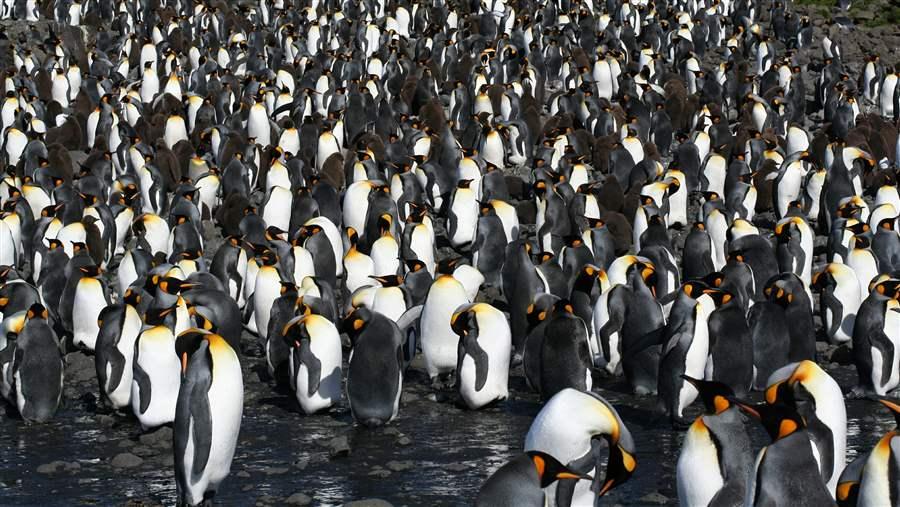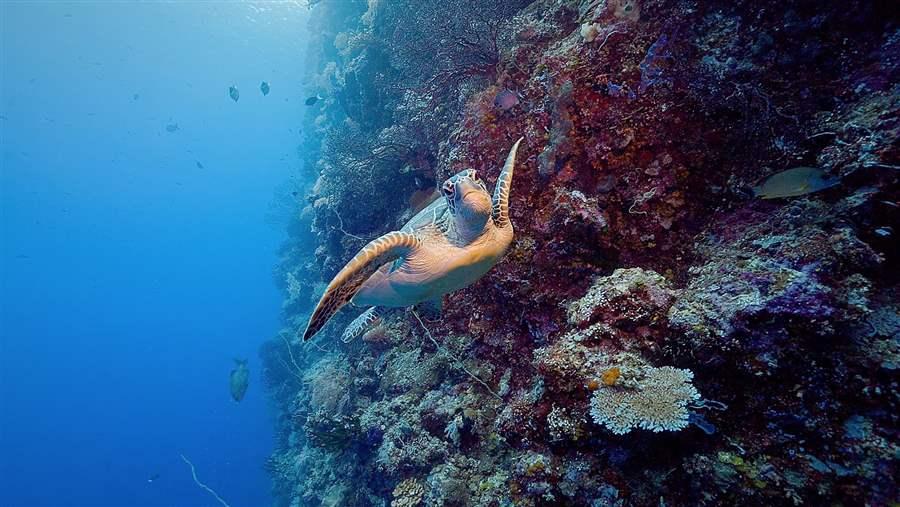France Looks to Protect Ocean Around Sub-Antarctic Islands
Expanding the proposal would ensure critical environmental benefits

Conserving this expanded area would protect the exceptional biodiversity found in this region.
© Jean Philippe Palasi
France has joined the global movement to protect the world’s ocean by proposing creation of a large fully protected marine reserve in sub-Antarctic waters in the southern Indian Ocean. The proposal, made by the French Environment Ministry in September, would safeguard 120,000 square kilometers (46,000 square miles) of ocean surrounding the Crozet and Kerguelen islands.
This is an ambitious plan, but by expanding the protected area to cover at least 550,000 square kilometers (212,000 square miles), the French government would ensure the effective and sustainable conservation of this rich marine environment.
With the larger marine reserve, the government would increase the amount of fully protected French waters from the current 0.2 to 4.9 percent. That would move France closer to the target the nation agreed to at “Grenelle de la mer,” a roundtable discussion in 2009 involving the French government and stakeholders, to strictly conserve 10 percent of its ocean by 2020.
It also would support a commitment made by Minister Ségolène Royal before the U.N. Convention on Climate Change, 21st Conference of the Parties, in Paris to create a 550,000-square-kilometer fully protected marine reserve in the sub-Antarctic Islands. In addition, the expanded area would support the global target of protecting 30 percent of the ocean by 2030 included in a motion adopted this year at the International Union for Conservation of Nature’s World Conservation Congress.
The waters around the Crozet and Kerguelen archipelagos contain notable concentrations of migratory birds and marine mammals. Conserving this expanded area would protect the marine ecosystems that play a critical role in preserving the exceptional biodiversity in this region. Among the species found here are critically endangered Amsterdam albatrosses, orca whales, and several species of penguin, seal, and tuna.
As science continues to reinforce the value of large-scale fully protected marine reserves as refuges to build resilience to a changing climate, France has the opportunity to help conserve the future health of the planet.
Jérôme Petit directs the Global Ocean Legacy program in French Polynesia.


America’s Overdose Crisis
Sign up for our five-email course explaining the overdose crisis in America, the state of treatment access, and ways to improve care
Sign up

This video is hosted by YouTube. In order to view it, you must consent to the use of “Marketing Cookies” by updating your preferences in the Cookie Settings link below. View on YouTube
This video is hosted by YouTube. In order to view it, you must consent to the use of “Marketing Cookies” by updating your preferences in the Cookie Settings link below. View on YouTube










